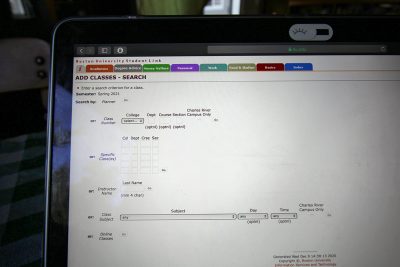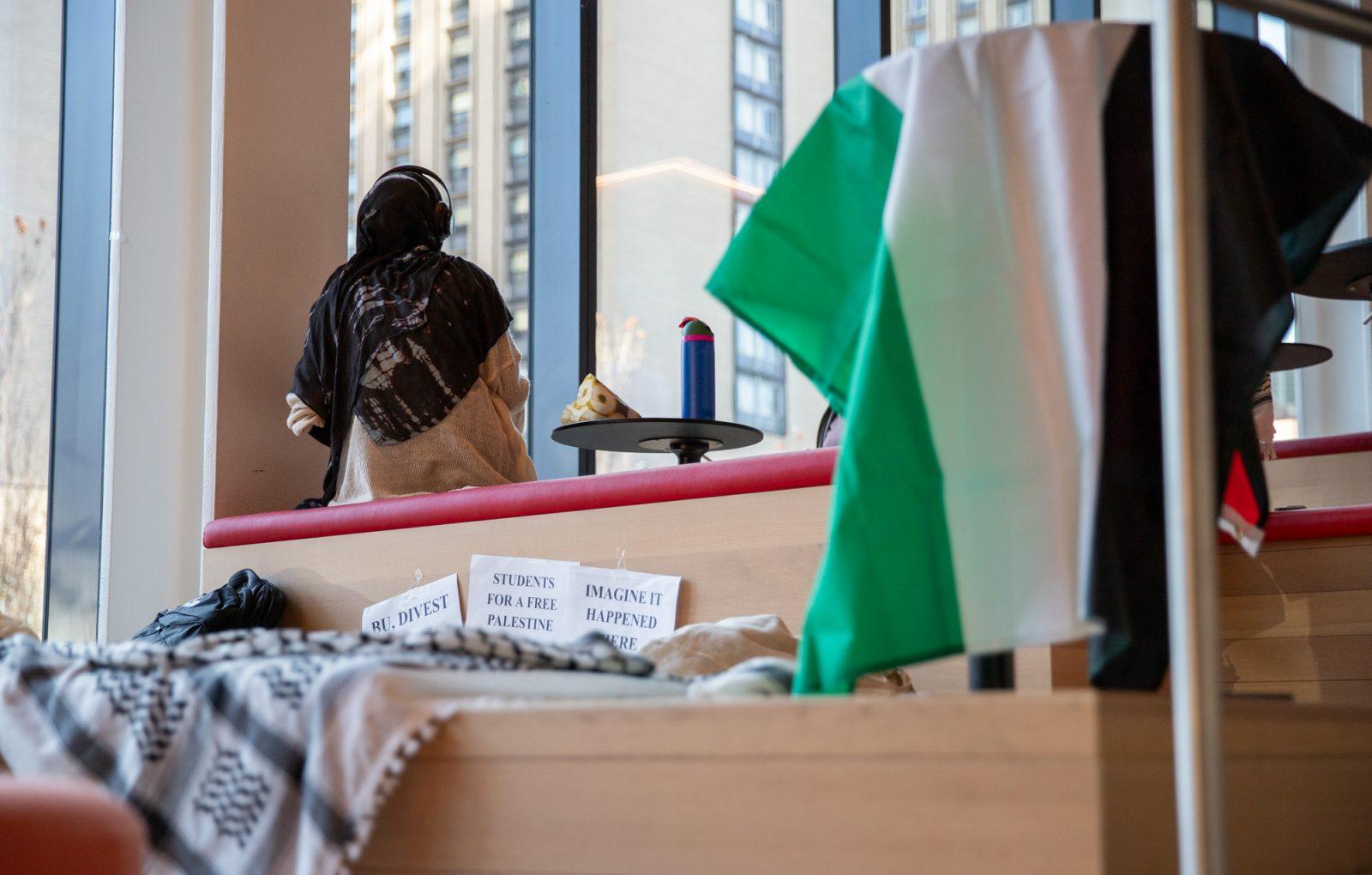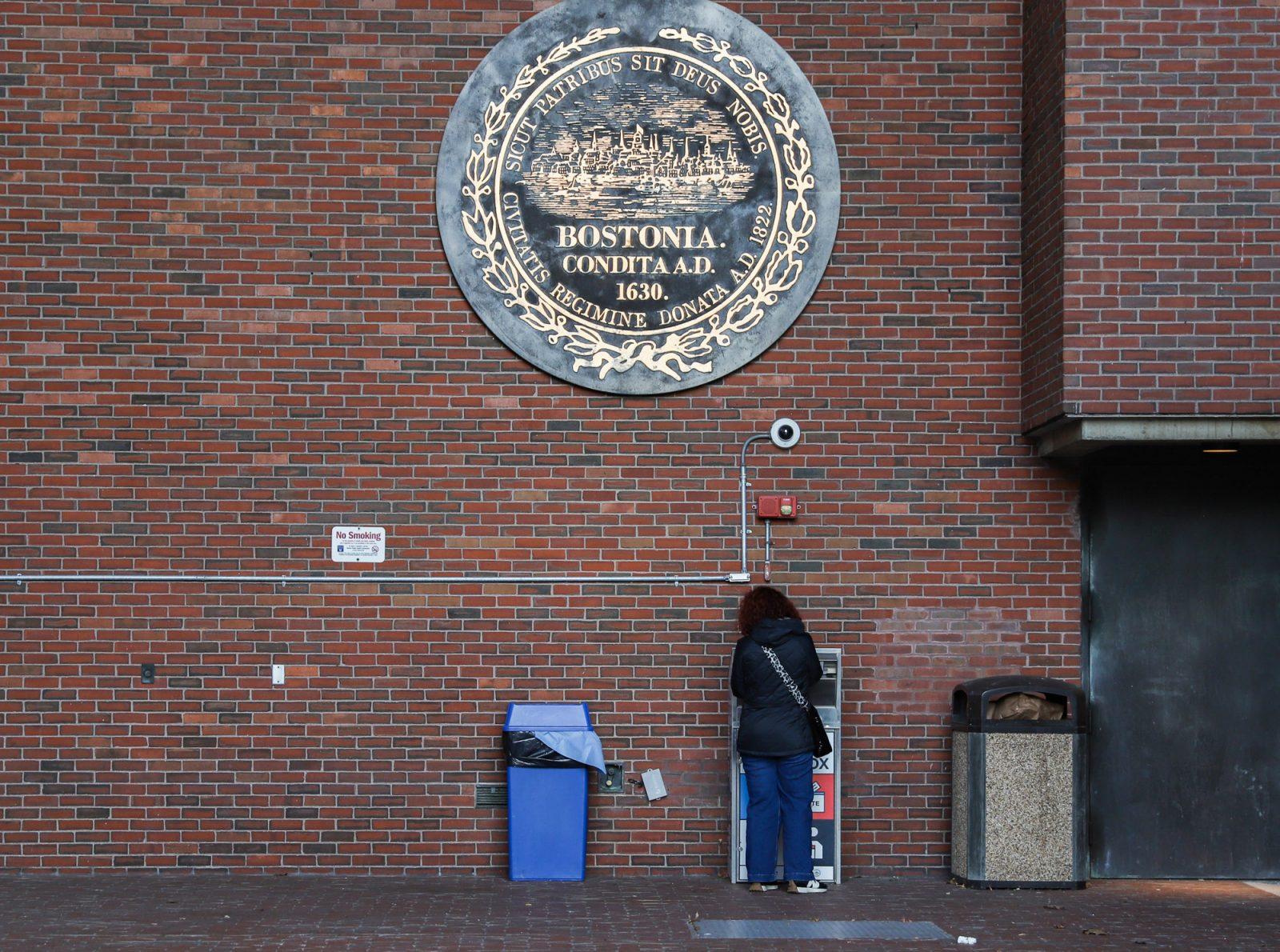
While course registration depends largely on luck, some Boston University deans said factors such as canceled Study Abroad programming and shifts to the registration schedule might be partially to blame for classes filling up earlier this round.
Registration for the 2021 Spring semester took place Nov. 28 for juniors and seniors, and Nov. 29 for sophomores and freshmen. Typically, registration is split into two weekends, with juniors and seniors two weeks ahead of sophomores and freshmen.
For this round, as usual, each student was assigned a random registration time based on the last digit of their BU ID number, with start times ranging from 7 a.m. to 5 p.m.
College of Communication Dean Mariette DiChristina wrote in an email holding registration entirely in one weekend decreased the potential for BU to make adjustments to course offerings before the next registration session.
DiChristina said in an earlier phone call another factor that contributed to a spike in competition for class seats was the increase in enrollment from students who would have studied abroad for the Spring — an opportunity that was canceled in October.
“Each of these students is making individual choices, and you can predict a lot of it but you can’t predict it perfectly,” DiChristina said. “This year, I would say, we have a little bit more to do to make it right for all the students so they get what they need.”
Course offerings are based on the predicted popularity of each course and the patterns of student interest over time, DiChristina said, which can sometimes be inaccurate — like it has been this year.
When waiting lists for courses accrue enough students, new sections will be added to specific courses, DiChristina said. Changes in the number of sections offered for specific courses will be communicated to the student body through COM’s departments and advisers.
“We’re lucky we work in a very adaptable field,” DiChristina said. “That’s what we’re trying to do now to make sure that everything works for the students.”
University Registrar Christine Paal wrote in an email BU’s colleges are being “very careful” in adhering to enrollment capacities. She added she does not know of any courses that will increase their class size for the Spring.
Joseph Bizup, an associate dean in the College of Arts and Sciences, wrote in an email that predicting demand for CAS courses has also been more difficult in the wake of Learn from Anywhere.
Where possible, additional seats and sections are being made available in CAS for courses to meet demand, Bizup wrote.
“Our priority is to ensure that students can enroll in the classes they need to take to fulfill their degree requirements,” Bizup wrote. “Some students might not be able to get into all of their top-choice classes, but that’s true in every semester.”
Despite this, Bizup wrote, CAS is exploring options to offer students more choices going forward.
“We understand how important it is for students to be able to choose from a wide array of classes,” Bizup wrote, “and we’re working to offer as many options as we can.”
Bizup wrote it is improbable to add an extensive amount of seats to remote-only classes because one professor can only handle so many students before the quality of education in the course must be compromised as a whole. But, he wrote, CAS is working to do so when it can.
The best way for students to handle not getting into the classes they intended to enroll in — especially ones required for their degree — is to communicate with their major adviser, Bizup wrote.
“CAS Advising is eager to work with any CAS student to help that student work out the best possible schedule,” he wrote.
Anastasia Eremina, a junior in CAS, wrote in an email she had mixed feelings on the registration process for next semester. While she successfully registered for one class she wanted, she did not get the professor she’d hoped for in another course.
“Registration was everything that I feared it to be — unfair,” Eremina wrote.
Her late registration time made the process emotionally taxing, she added.
“I almost cried when I saw the classes I wanted were already filled,” Eremina wrote, “looooong before I even had the chance to open the search tool.”
Eremina wrote abiding by a “first come, first serve” procedure is unfair because relying on arbitrary luck means some students will always be put at a disadvantage when trying to register.
“I think the whole system shows how blatantly BU administration does not care about its students — in addition to introducing a useless gen ed program with 26 units,” Eremina wrote, referencing the BU Hub, “it seems everything has been done to make the path to graduation harder for students.”
CAS junior Caitlin Meyer said getting the classes she wanted for her degree and Hub requirements took “quite a lot of effort” during this year’s registration process.
Meyer said her class year was the first to encounter the Hub, meaning she and many of her peers had already taken certain courses before they were assigned Hub credits.
She said she was then told she could not retroactively apply Hub credits to classes she had already taken, despite them now having Hub units attached to them.
“If my class that I took this Fall gathered the new Hub credit next Spring or maybe even a year later, I personally think we should be able to apply those credits,” Meyer said. “It would make a lot less competition among the students trying to complete the Hub.”
Meyer said she feels she should not have to worry about attaining Hub credits her senior year and wishes she could focus on her major instead.
“They made it very difficult for my grade, and I would say probably current sophomores as well, to actually get all of the credits,” Meyer said.
Grant Murray, a freshman in the Questrom School of Business, said his registration was “extremely stressful” because of his late registration time and the design of Student Link.
“The website doesn’t really help because it’s just really hard to navigate,” Murray said. “The stress builds up.”






















































































































